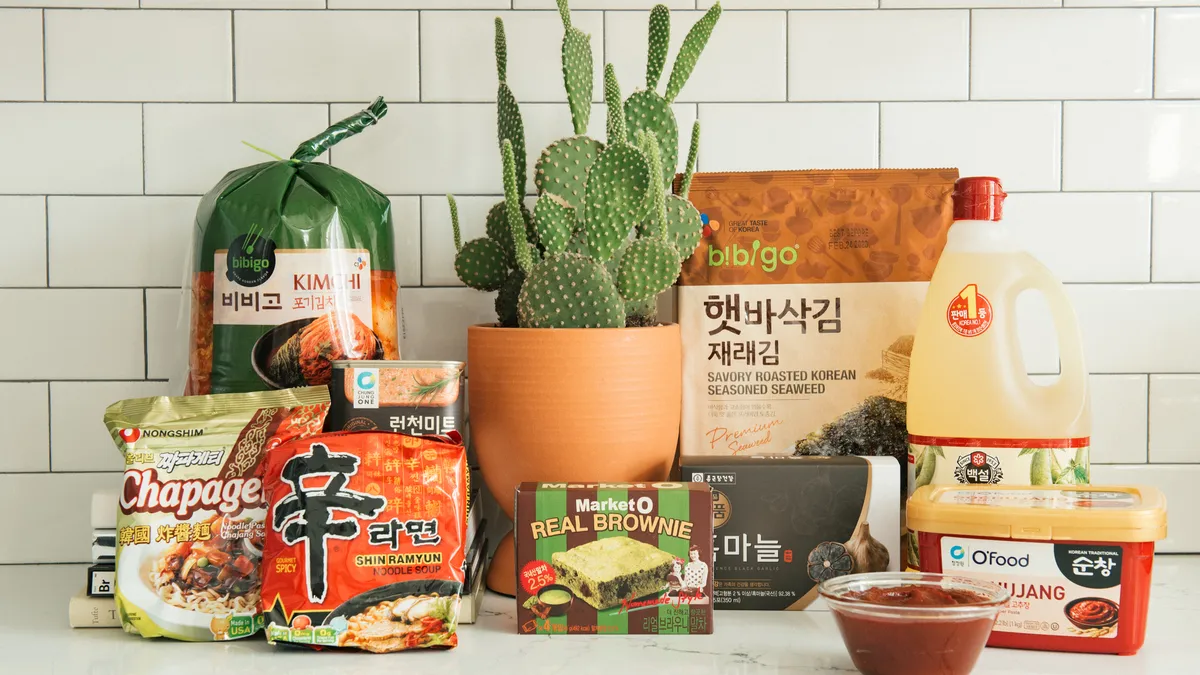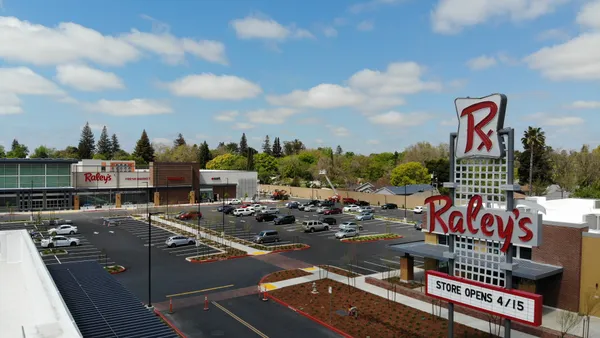Dive Brief:
-
Asian grocery delivery startup Weee this week named Ankur Shah its first CFO and chief strategy officer. Shah started on Jan. 25, along with Weee's first general counsel, Thomas Jeon, a former eBay, Netflix and Lucasfilm executive.
-
Prior to joining Weee, Shah was CFO and chief strategy officer at Careem, a Dubai-based ride-hailing company that Uber acquired for $3.1 billion in 2019.
- Since founding the Fremont, California-based company in 2015, CEO Larry Liu has led the company's financial operations, he told Grocery Dive in an interview.
Dive Insight:
With Shah at the helm, Weee intends to continue expanding, reaching 30 American and Canadian cities by 2024, Shah told The Wall Street Journal.
Shah began his career as an analyst at McKinsey & Company. Throughout his career, he focused on service, helping build over 25 public school libraries in New York City with the Robin Hood Foundation and opening a company to provide safe drinking water to rural communities in India, Weee said in a statement.
Just prior to joining Careem, he made venture investments in emerging markets at Acumen Fund and played "multiple public service roles," Weee said.
"The most important lesson I took away from [the Uber acquisition] is that it helps to have excellent relationships within the industry, both from the learning and partnership perspective," Shah told CFO Dive in an interview Thursday. "While Uber was Careem's most direct competitor, it was also the best place for us to grow our business, which was only possible because we had the relationships that allowed us to explore."
Additionally, at the time of Careem's acquisition, Uber was in the final stretch of its own IPO process; it was publicly listed just weeks after the deal closed.
"So, in effect, we at Careem were shepherded through a listing process of our own," Shah recalled. "From a finance point of view, that was a very helpful experience."
From a strategy perspective, Shah sees an enormous growth opportunity at Weee. "Over the last 20 years, the ethnic population has grown 3 to 4% per year on average, and the offline grocery format has not kept up with that demographic shift," he said. "There's an enormous opportunity to serve a community that has not been directly served by our offline competitors."
From a finance perspective, Shah expects to tackle the e-grocer's systems and processes as the business matures and advances towards an IPO, and predictable, efficient performance and forecasting become more important.
"Ultimately, I believe that none of that can happen without the right people, so I really prioritize ensuring we have the right people on our team," he added. "We're looking to bring on a corporate controller, assistant controller, an FP&A director, and so on."
Weee, currently privately held, achieved profitability in 2020 and is currently preparing to post an "eventual" IPO, Shah told the Journal. The company employs about 1,000 and delivers "hard-to-find" Chinese, Korean and Japanese groceries to about 300,000 households across 15 metropolitan areas in the U.S.
As of October 2020, the e-grocer had fulfilled over 5.2 million total orders, according to Grocery Dive, and it has seen 700% revenue growth year-over-year and already achieved profitability "in an industry known for its thin profit margins."
To date, the grocer has received about $100 million in funding from such investors as Goodwater Capital, iFly Venture Capital, VMG Partners, Lightspeed Venture Partners and Silicon Valley Bank, it said in a statement.
Venture firm DST Global, which also invested in online grocer Instacart, led Weee's August 2020 Series C round, which brought in $35 million, Grocery Dive reported.
At present, Weee does not need any additional funding, Shah told the Journal, declining to comment on a potential IPO date.
Liu told Grocery Dive in October that Weee's continued growth stems from its ability to incentivize consumer interaction on social media platforms while solving pain points for Asian consumers in the U.S.
"The demand for Asian groceries has been climbing," Neil Stern, the former senior partner at retail strategy and consulting firm McMillanDoolittle who now is the CEO of California-based Good Food Holdings, told Grocery Dive.
With this filling out of the C-suite, Weee aims to focus on geographic growth, ethnic group expansion and product category diversification. "For the next five years, our goal is to be the primary source of groceries for Asians in North America," Liu told Grocery Dive.
Liu said Weee is looking to move into areas with significant Asian populations including Atlanta; Boston; Philadelphia; Chicago; Washington, D.C.; Houston; Dallas and San Antonio.
"We plan to enter those markets within the next six months. Probably not all of them, but many of them," he said. "We're rapidly expanding to other Asian communities, because the pain points are exactly the same: they are all very underserved by the existing brick and mortar stores."














